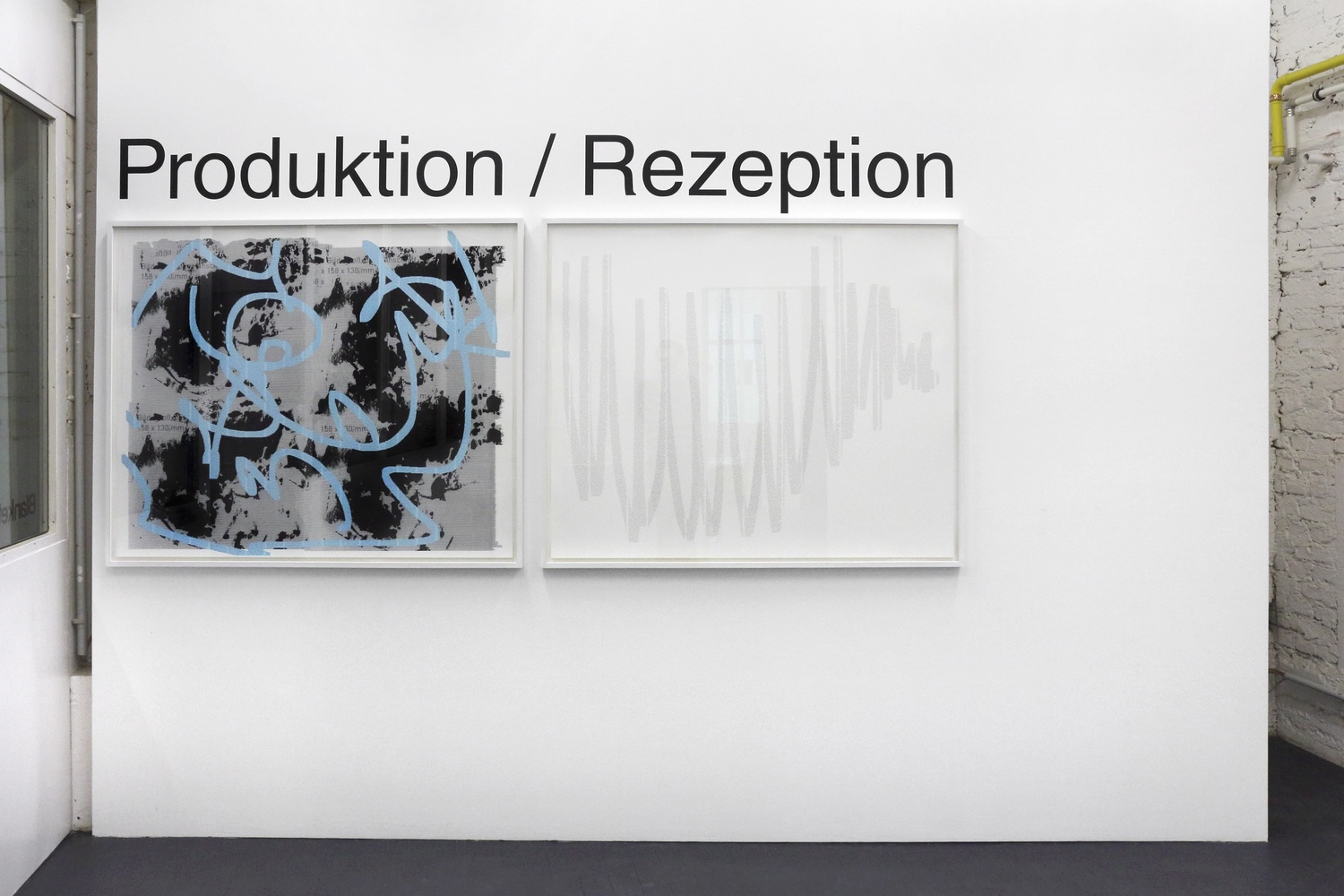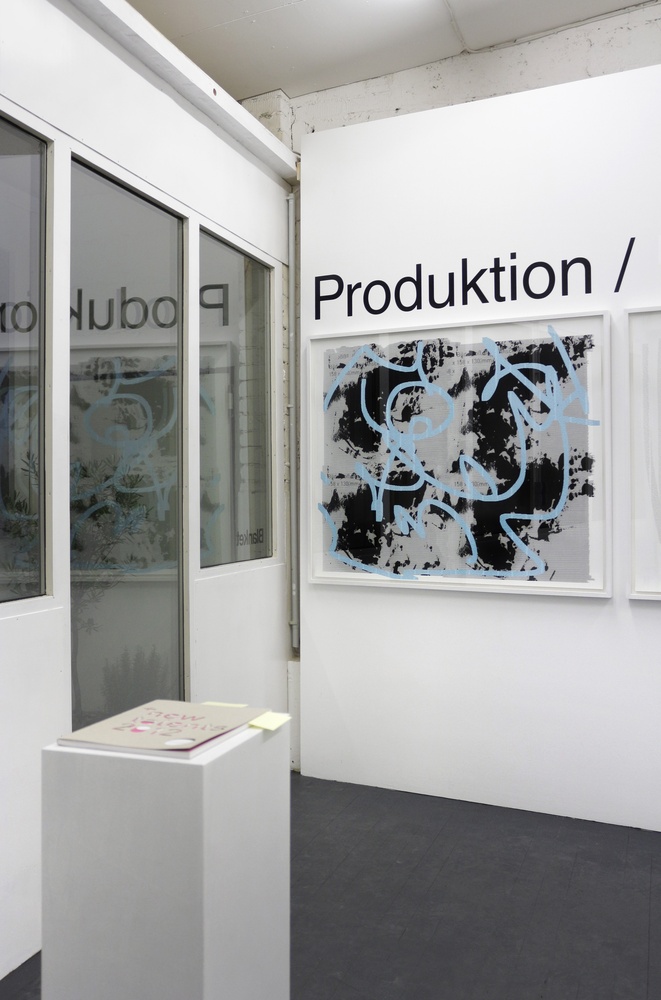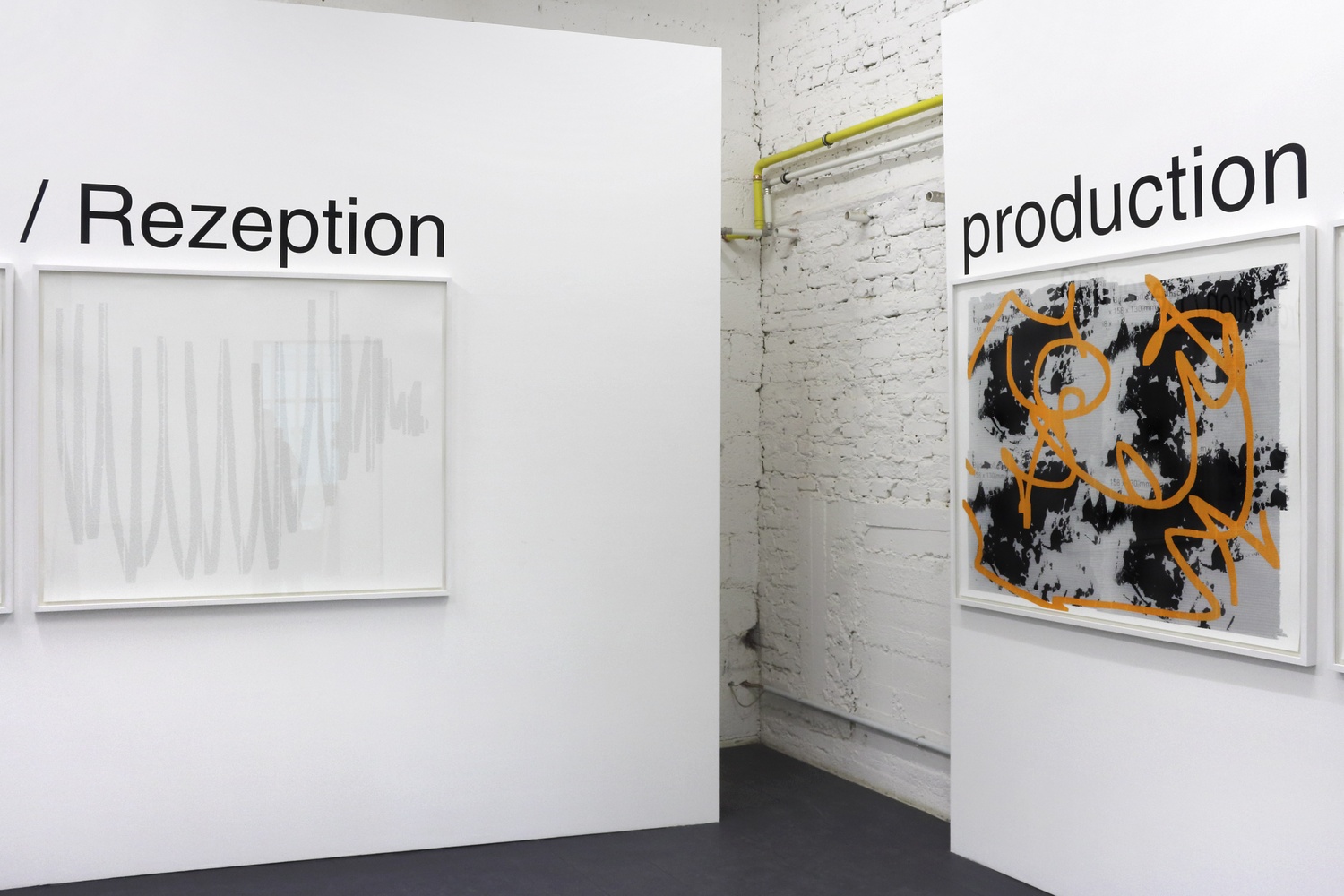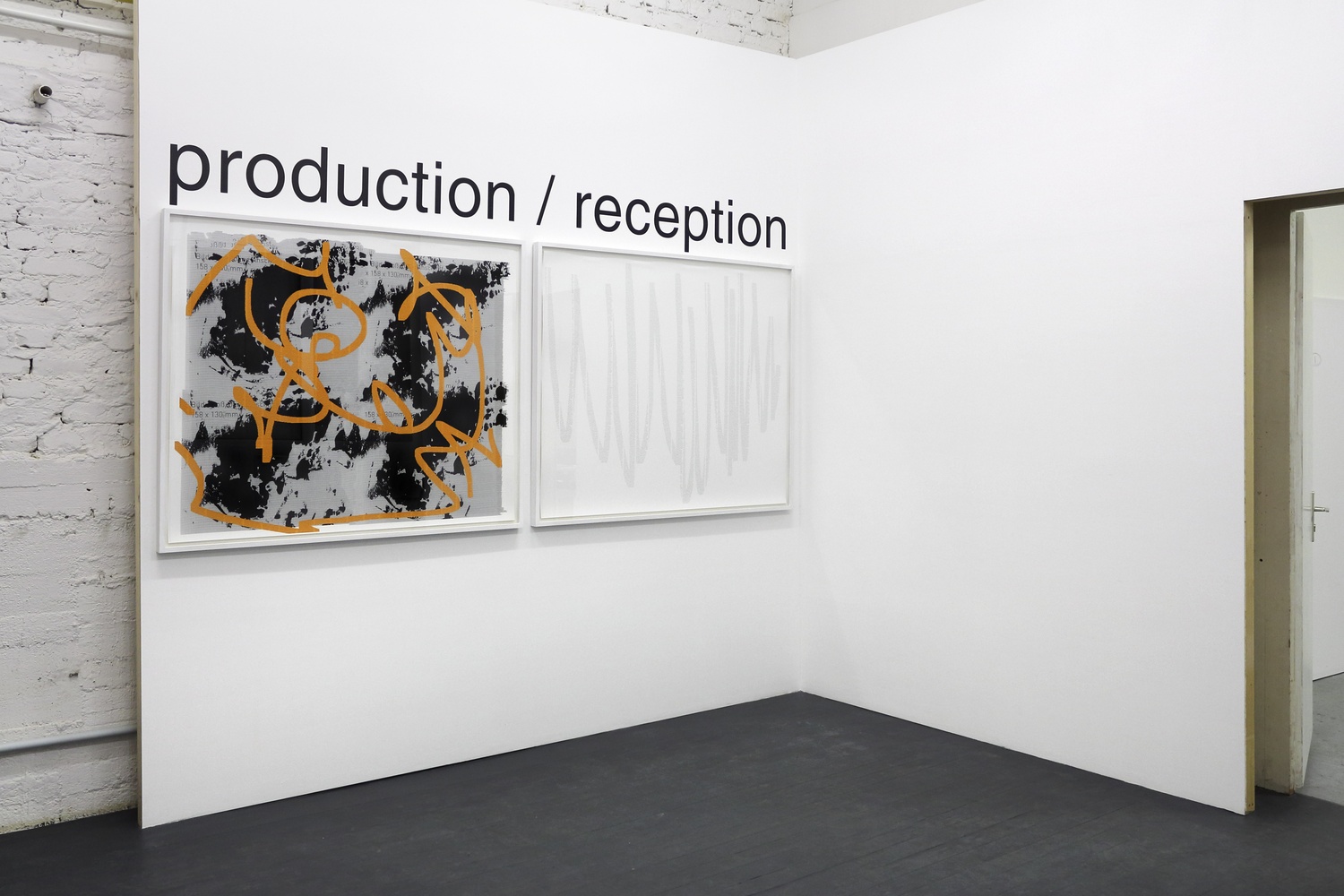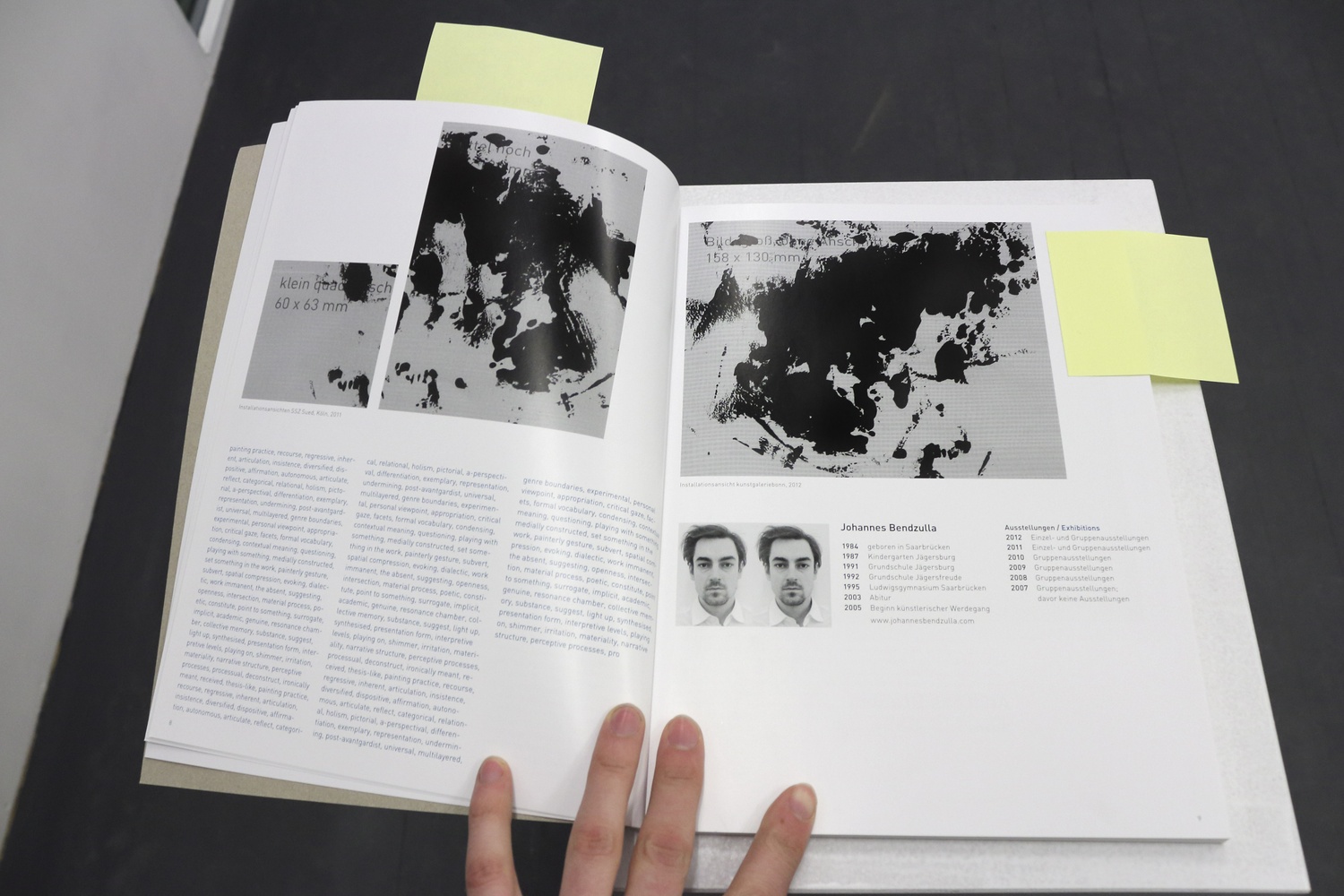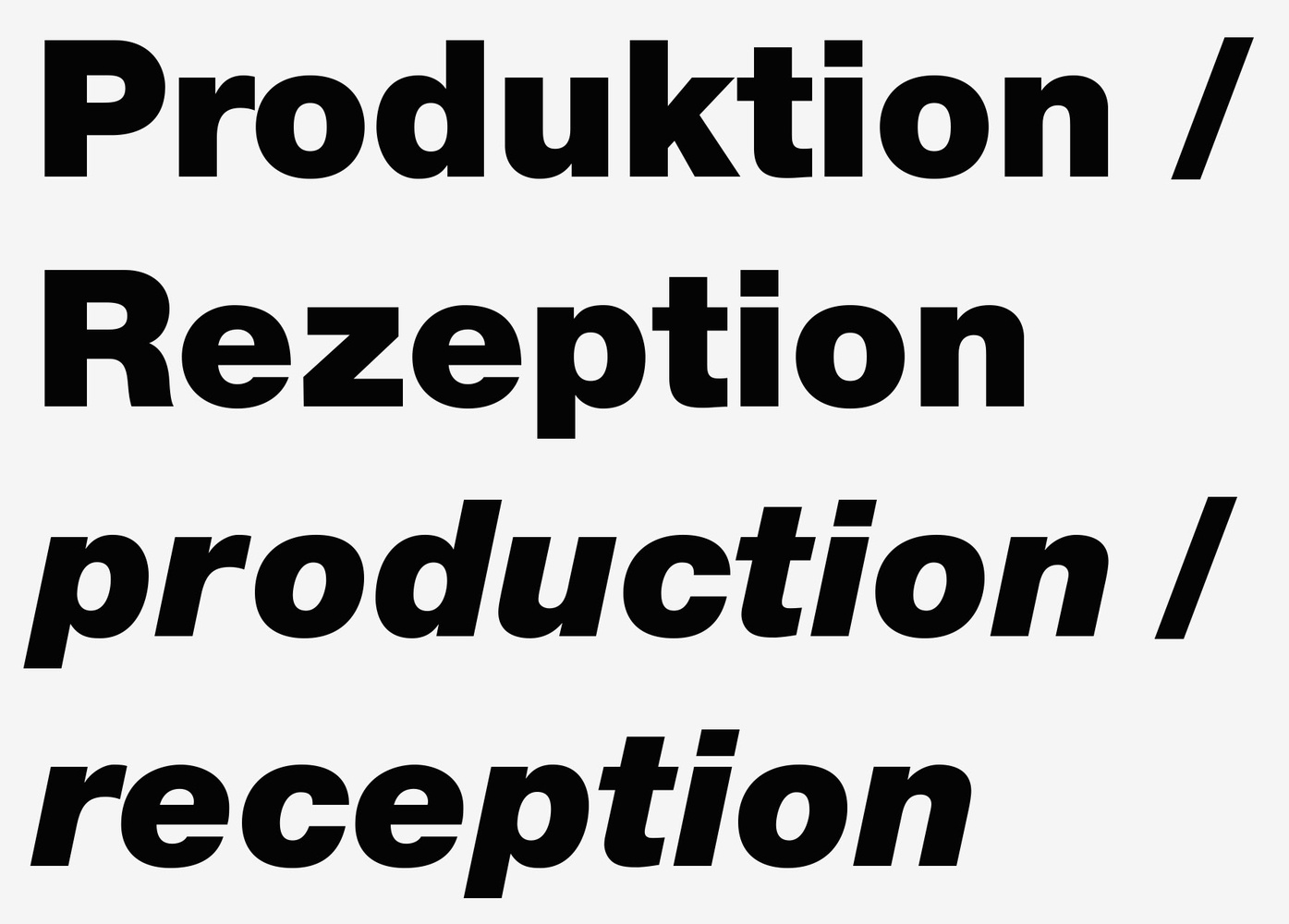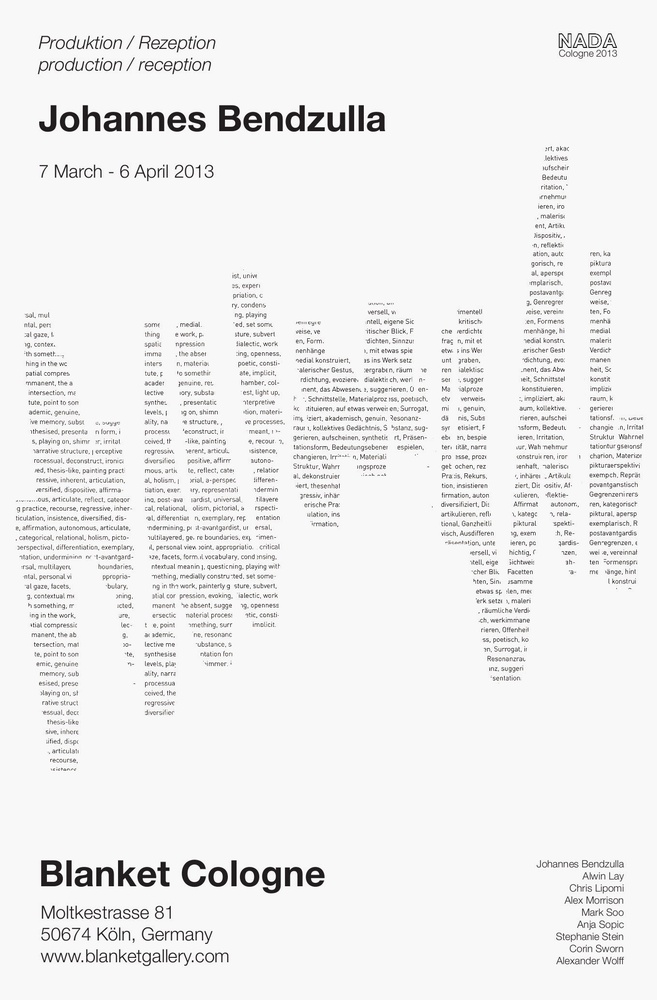The exhibition is based on a contribution the artist made for a group exhibition catalog, which is displayed on a pedestal in the gallery space as reference material. During production of the catalog, Bendzulla subverted the traditional catalog text and exhibition images, defacing the catalog layout with black paint and replacing the accompanying images with digital scans. He also exchanged the traditional essay with a self-replicating assemblage of terms commonly found in critical writing. The catalogue also offers an English translation of this text.
For the exhibition, Bendzulla made two pairs of nearly identical digital collages: each pair is placed on a separate wall where one refers to the German text in the catalogue and the other to its English translation. The collages offer a particular aesthetic experience where the works blend the picture (production) elements with the catalogue text (reception) elements. Bendzulla employs the strategies of repetition and redundancy as well as ‘utilitarian rationality’ to subvert the clichés and fixed symbols of creative self-expression, originality, and the identity of the artist and artwork. Repetition here is exemplified with the two pairs of collages just slightly different in composition and color as well as the pointless division of form and language. The collages’ background layer is composed of a multiplication of the catalog’s defaced images, thus breaking down the meaning of the image and information conveyed in the text, questioning the fundamentals of art production, its display and reception. The bureaucratic title of the exhibition reinforces the futile semantic separation. Produktion / Rezeption - production / reception is a simple designation of two art world mechanisms where the German and English translations are void of any narrative or metaphorical interpretations, providing the exhibition with practically nothing. The title of the exhibition is also replicated in wall-text headlines placed above the collages. While pretending to be descriptive, the headlines’ actual information is too general and in fact redundant.
Bendzulla’s strategies are self-alienating and can be understood as his reaction to a contemporary social condition, where both the wish and demand for a self-fulfilling creative identity, in all its facets, not only lead to new personal freedoms, but also to new forms of self-governance and exploitation. Bendzulla’s work ultimately holds an invitation to general criticism within the omnipresent demand for creative self-fulfillment.
